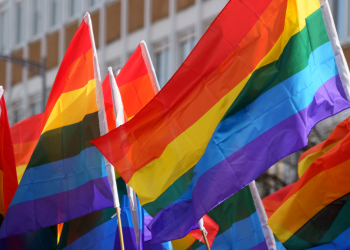Last updated on November 25th, 2022 at 09:27 am
“In the course of human events, it sometimes becomes necessary for people of good faith to speak out against the abuse of power. This should be done only after serious and prayerful deliberation, and even then, in an attitude of humility and with respect for the authorities that have been established by God. Such protest should be expressed in the hope that civil authorities who are found to be eroding rights and liberties may yet fulfill their responsibility as their rightful guardians.”
Thus begins the Frankfurt Declaration of Christian and Civil Liberties recently issued by concerned pastors from around the world and now signed by almost 6,000 people. In its five articles the authors defend the Christian worldview against the overreach of increasingly totalitarian states trying to dominate all spheres of life, especially those of the conscience and those regarding the Church.
In Article 1, the Declaration affirms that God “has revealed in the Holy Scriptures and the conscience of men an unchangeable morality which is rooted in His own character, and which defines the nature of good and evil conduct for all people at all times.” As a result of this truth, the Declaration “den[ies] the right of any earthly authority to define morality and require unconditional obedience of their citizens when contrary to His law.”
In Article II, the authors of the Declaration unequivocally declare that “objective truth exists and can be derived from His revelation in Scripture and nature, and from any facts that can be credibly verified.” Importantly, they add that they “endorse science which seeks to discover, through the scientific method and debate, the truths that God has built into the natural world.” Indeed, revelation and scientific facts support each other as they both come from the same source: God.
However, the authors reject “any deception, fear-mongering, propagandizing, and indoctrination by the State and mass media” in regard to “truths” that do not cohere with revelation and facts. In addition, they deny “the assertions of any so-called ‘scientific consensus’ which abandons the scientific method and ignores or suppresses the concerns of dissident voices” and reject scientism, which makes worldview claims that go beyond what science can actually prove.
In Article III, the Declaration states the great truth that every Christian and Jew should know by heart and that led to the recognition of universal human rights:
“every human being is created in the image and likeness of God (imago Dei) and therefore has inherent dignity and worth, along with certain inalienable rights and liberties requisite for a proper human life.”
Some of these rights include the rights to public worship, to engage in personal and in-person relationships, and to participate in key moments of human life such as marrying in a public setting, being present at the birth of child, attending funerals, and sharing meals with others. The authors mention these rights because all too many governments abrogated them when they implemented draconian COVID lockdowns. Indeed, some governments allowed strip clubs and liquor stores to remain open as “essential services” during COVID while forbidding church services and other religious gatherings.
In Article IV, the authors affirm
“that all earthly authorities derive their authority (‘the right to be obeyed’) from God, who is over all and to whom all must give account. We believe that He has established their different spheres of responsibility (i.e., mandates) and in so doing has set limits to their authority.”
In particular, God has created separate spheres for the state, the Church, and family, spheres whose boundaries must be respected. God has given the state responsibility for “rewarding good and punishing evil, and…protect[ing] the God-given rights and freedoms granted to all people.” The Church has been given authority “to make disciples of all nations by preaching the Word of God, and to establish and administer redeemed communities of faith living under the authority of Christ.” And to the family God has given the authority to “foster… societal cohesion and sexual fidelity, and to protect, provide for, raise and educate children in the way of the Lord.”
Because of this division of authority, the authors
“reject the tendency of governments to centralize beliefs and conduct for their citizens by creating an authoritarian society in which the State is absolute. Such totalitariansism and statism is built upon beliefs that have fundamentally redefined good and evil and the nature of human beings, and are contrary to the divine order of things.”
Finally, in Article V the Declaration reiterates the independence of the Church from the dictates of the State. It declares that “Christ’s command to give to Caesar (i.e., the civil authority) what belongs to Caesar and to God what belongs to God establishes the functional independence of the Church from the State.” Because of this the authors deny
“that any other authority has jurisdiction over the Church to regulate any of its affairs in matters of faith and practice, or to relegate its activities to non-essential status. We therefore repudiate all actions of the State that impose coercive measures over the Church and criminalize, inhibit, or regulate any of its activities which are undertaken as acts of service toward its Lord.”
In its conclusion, the Frankfort Declaration commends those governments that have respected individual and religious freedoms, calls to repentance those governments that have disregarded these freedoms, and to those governments who want to actively subordinate the Church and family to the State:
“[W]e respectfully, but firmly say (like the three Hebrews who refused to worship Nebuchadnezzar’s golden statue), ‘We have no need to answer you in this matter. The God we serve is able to save us from you, and He will rescue us from your hand. But even if he does not, we want you to know that we will not serve your gods or worship the idols you have set up.’”
In the recently-issued Frankfort Declaration of Christian and Civil Liberties, an international group of pastors calls for the State to recognize both the limits God has placed on it and the spheres of authority of the Church and family. While the battle will not be easy to reign in rogue states from their insatiable quest to dominate all areas of life, the Declaration calls upon Christians to stand strong:
“To our brothers and sisters in Christ around the world we say: ‘Be strong and courageous. Do not be frightened, and do not be dismayed, for the Lord your God is with you wherever you go.’ (Josh 1:9) It appears that the world may well be entering a time of testing, not only for the Church, but for everyone who believes in freedom and who opposes tyranny. Let us stand with those who are hard-pressed, arrested, or forcefully isolated because they have chosen to do what is right.”




















Discussion about this post